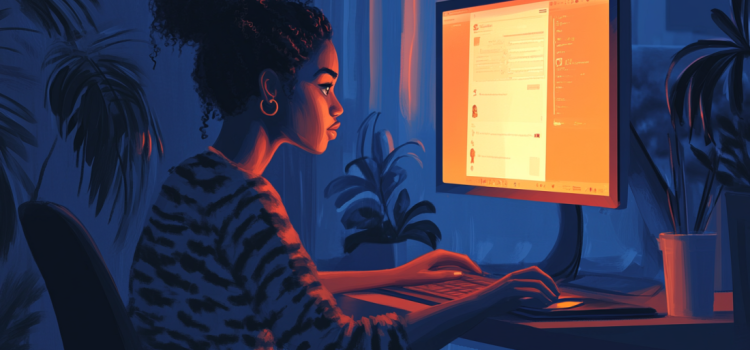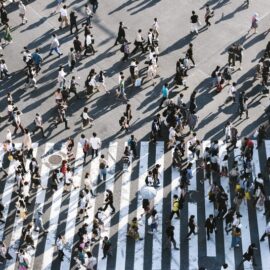
Do you find yourself scrolling through social media for hours? How does social media affect attention span?
While online algorithms sometimes direct us from one static website to another, Gloria Mark writes in Attention Span that the bulk of algorithmic attention control revolves around social media platforms. She says these sites sap away our focus by leaning on our desire for validation and our basic human nature.
Keep reading to learn how sites like Instagram and TikTok take a toll on your ability to concentrate.
The Social Media Trap
As with in-person interactions, the online communities created by social media allow us to trade in social capital—the status, prestige, and comfort that comes from being a member of the “in group.” Mark says social media affects attention span by pressuring us to spend time making posts, responding to comments, and checking for “likes,” tearing us away from other things we might be doing. If you’re a high-profile member in an online community, you’ll feel pulled to maintain or ramp up your engagement so that you can maintain your status, whereas if your online status is low, you may feel pressured to make more posts and connections to elevate your status.
(Shortform note: In addition to the pressure to stay engaged that Mark discusses, social media use has also been shown to promote low self-esteem and loneliness. In The Age of Surveillance Capitalism, Shoshana Zuboff argues that social media apps encourage extreme levels of social comparison, which harms feelings of self-worth, increases body judgment, and triggers more frequent instances of depression. Furthermore, psychologists say that social media platforms create a cycle of isolation by enticing us to connect with people through their apps rather than meet our friends and family face-to-face. In some respects, it may be that the way social media erodes our attention is the least of its problems.)
At its most basic level, social media leverages our nature as social creatures to distract us from more fruitful uses of our time. Mark explains that these platforms influence us by mirroring, accelerating, and amplifying the social pressures we feel in real-world communities and gatherings. Perhaps surprisingly, while people claim to prefer face-to-face interactions, those who spend more time on social media report being happier overall. Mark suggests this may be due to the lower cognitive drain of online socializing (mostly in the form of “liking” posts and texting), while face-to-face interactions demand concentrated attention. But according to Mark, the price we pay for the ease of social media communication is heightened distractibility.
(Shortform note: While social media hacks users’ social drives, it’s embedded itself so deeply in our culture that disconnecting can be hard. In James Acaster’s Guide to Quitting Social Media, he says that detaching from the online world left him feeling isolated since his ability to maintain friendships had become dependent on digital apps. Once offline, he had to rebuild his social circle and sense of community through in-person groups and interactive activities. He also had to make a deliberate effort to stay in touch with his family and friends and to stay informed about current events, without using social media as a crutch. However, he found that his offline relationships became more meaningful as a result.)






